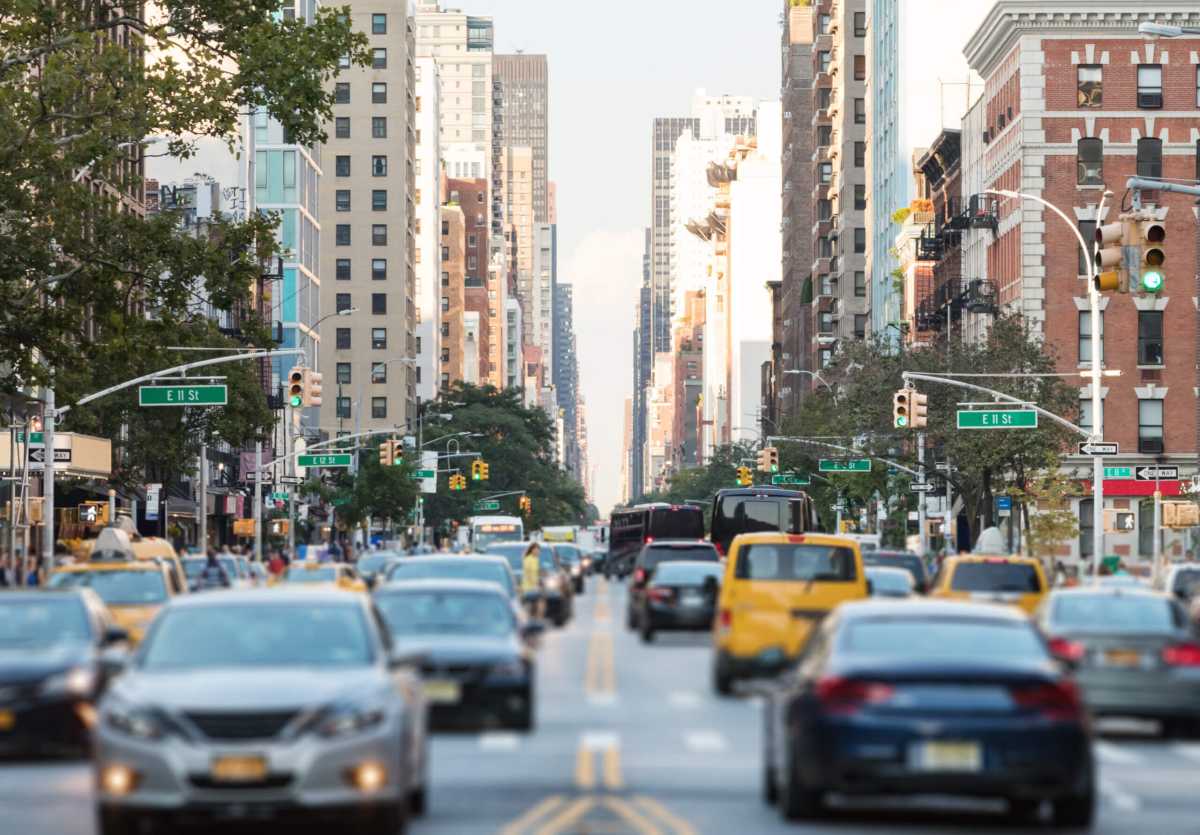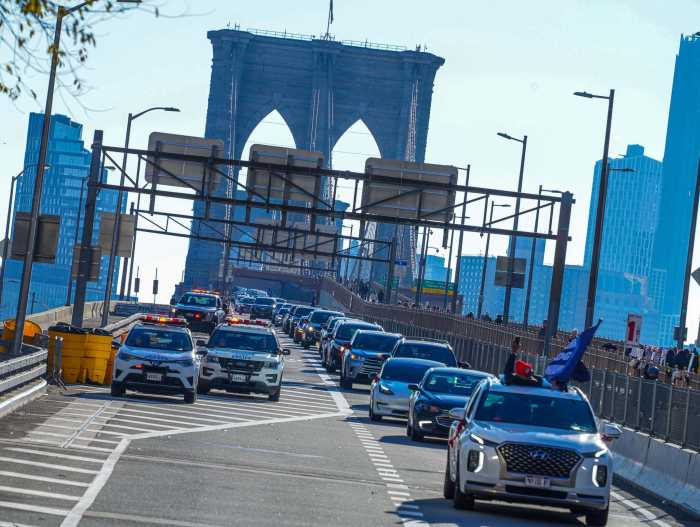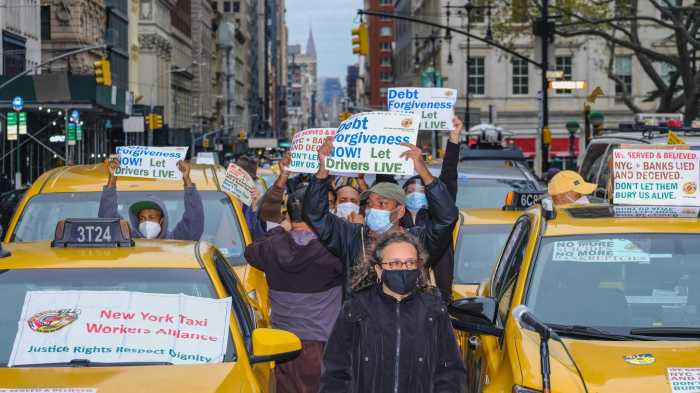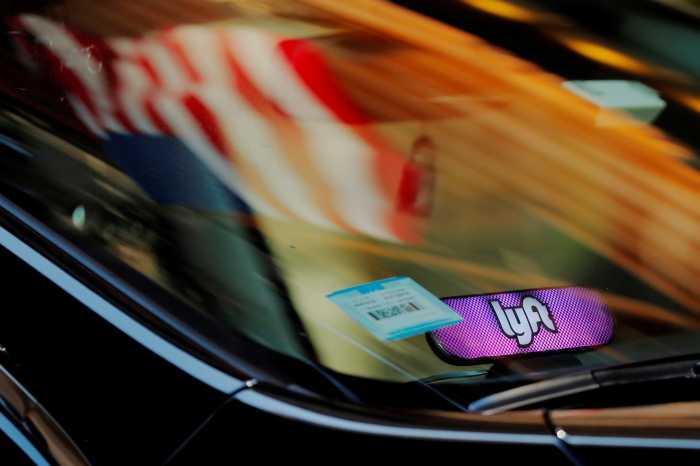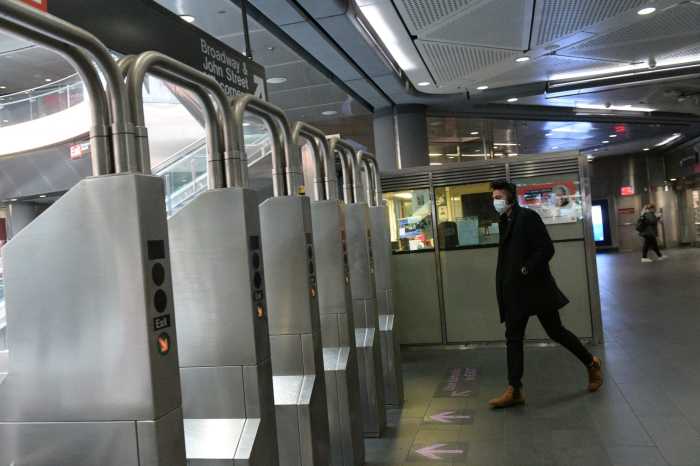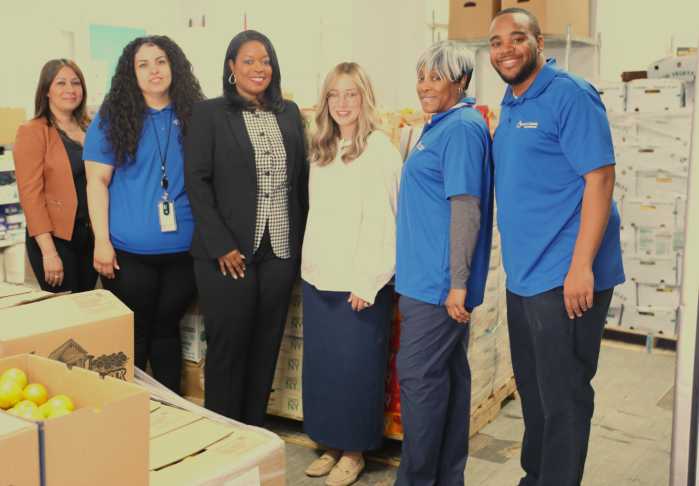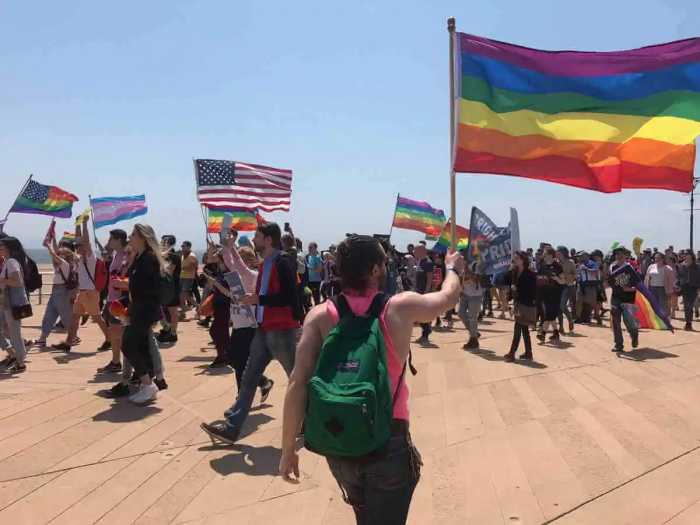Uber and Lyft will pay a combined $328 million to settle years of New York wage theft claims, state Attorney General Letitia James announced on Thursday.
Uber will pay $290 million and Lyft will pay $38 million into separate settlement funds that will distribute back pay owed to approximately 100,000 drivers. The rideshare giants, which admitted no wrongdoing, each illegally withheld sales taxes and workers’ compensation fees from drivers’ pay for years, despite the fact those fees were supposed to instead be paid by passengers.
From 2014 to 2017, Uber told drivers it could charge any incurred tolls, taxes, and fees to riders but never provided a method to do so. Lyft, meanwhile, deducted an 11.4% “administrative charge” from drivers, equal to the sales taxes and workers’ comp fees they were owed, from 2015 to 2017.
The companies also failed to provide their drivers with paid sick leave, which they’re entitled to as workers under city and state law.
“For years, Uber and Lyft systematically cheated their drivers out of hundreds of millions of dollars in pay and benefits while they worked long hours in challenging conditions,” James said in a statement. “These settlements will ensure they finally get what they have rightfully earned and are owed under the law.”
In addition, Uber and Lyft drivers will now be entitled to paid sick leave under the terms of the settlement. Drivers will earn an hour of sick pay for every 30 hours worked and will be eligible for up to 56 hours of paid sick time per year. The companies will update their apps so drivers can request sick time through them.
The settlement also entitles Uber and Lyft drivers outside New York City to a minimum wage for the first time, starting at $26 per hour and adjusting annually for inflation. Drivers within New York City already get a minimum wage based on trip distance and time.
The wage theft matter was first brought to court in 2016 by the New York Taxi Workers Alliance (NYTWA), a union repping some 20,000 taxi and for-hire vehicle drivers. Uber admitted to underpaying its workers by millions of dollars in 2017, soon after NYTWA filed suit, but the union would later sue again claiming that not every driver got what they were owed.
“We’ve waited eight long years to see justice for our members, a workforce that was cheated out of better living conditions, and timely meals and rest and leisure because the earnings that would have provided for that life were stolen by multi-billion dollar corporations,” said Bhairavi Desai, executive director of NYTWA. “We’re thrilled by this historic wage theft recovery.”
One NYTWA member and former Uber and Lyft driver, Malang Gassama, contends that the rideshare giants stole more than $25,000 in wages from him.
“With that money, I could have helped my wife open the business she dreamed about. I could have bought property and sent more money to my family back home in Africa,” said Gassama. “I could have kept my kids in the karate lessons they loved that we had to pull them from because we couldn’t afford the expense. Uber and Lyft stole those opportunities from my family and from the families of thousands of other New York City drivers.”
Reps for Uber and Lyft say that the settlement puts to rest New York investigations into how the companies classify their workers. The deal does not fundamentally change the dynamic between the companies and drivers, who will remain classified as independent contractors rather than employees.
“The agreement is a win for drivers across New York State who can now enjoy both the flexibility that is so important to them, while also having new benefits and protections like a minimum earnings standard and paid sick leave,” Uber’s chief legal officer, Tony West, wrote in a blog post. “This helps put to rest the classification issue in New York and moves us forward with a model that reflects the way people are increasingly choosing to work.”
Uber also reached a settlement with the state Department of Labor to begin making regular payments into the state’s unemployment insurance system.
Lyft’s chief policy officer, Jeremy Bird, described the settlement as a “win” for drivers.
“This is a win for drivers, and one we are proud to have achieved with the New York Attorney General’s Office,” said Bird. “New York has long been a leader in providing drivers portable benefits through flexible earning opportunities with its Black Car Fund, and this agreement expands upon that foundation.”
The new benefits arrangement for drivers is set to take effect in February. Drivers will be notified of the settlement by mail, email, or text message, according to the attorney general’s office.
Drivers can file claims for back pay and learn more about the settlement at https://ag.ny.gov/lyft-uber-settlement



